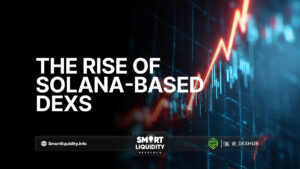Top Features of Decentralized Exchanges


Decentralized exchanges (DEXs) are rapidly gaining popularity in the cryptocurrency world. Unlike centralized exchanges (CEXs), which rely on third-party intermediaries, DEXs operate on blockchain technology, offering a range of unique benefits.
Here are the top features of decentralized exchanges that make them stand out.
Security and Privacy
One of the most significant advantages of DEXs is enhanced security. Since they don’t require users to store funds on a central server, there’s no single point of failure. This minimizes the risk of hacks or data breaches. Moreover, users maintain control over their private keys, offering greater privacy and protection.
No Intermediaries
Unlike traditional exchanges, DEXs allow peer-to-peer trading, cutting out the need for intermediaries. As a result, trades are executed directly between users. This feature eliminates the need for trust in a central authority, providing a more transparent environment for trading.
Lower Fees
Typically, DEXs have lower transaction fees than their centralized counterparts. Without the overhead costs associated with managing a centralized platform, DEXs can offer more competitive fees, making them a cost-effective option for traders.
Greater Control
On a DEX, users have full control over their assets. They are not reliant on a third party to manage or safeguard their funds. This autonomy is appealing to many crypto enthusiasts who value decentralization.
Access to a Wide Range of Tokens
Additionally, DEXs often offer access to a broader variety of tokens. Since anyone can create a token and list it on a DEX, users can trade a wide range of assets that may not be available on centralized platforms.
In conclusion, decentralized exchanges offer users enhanced security, lower fees, and more control over their assets. As these platforms continue to evolve, their role in the cryptocurrency ecosystem will likely expand.




